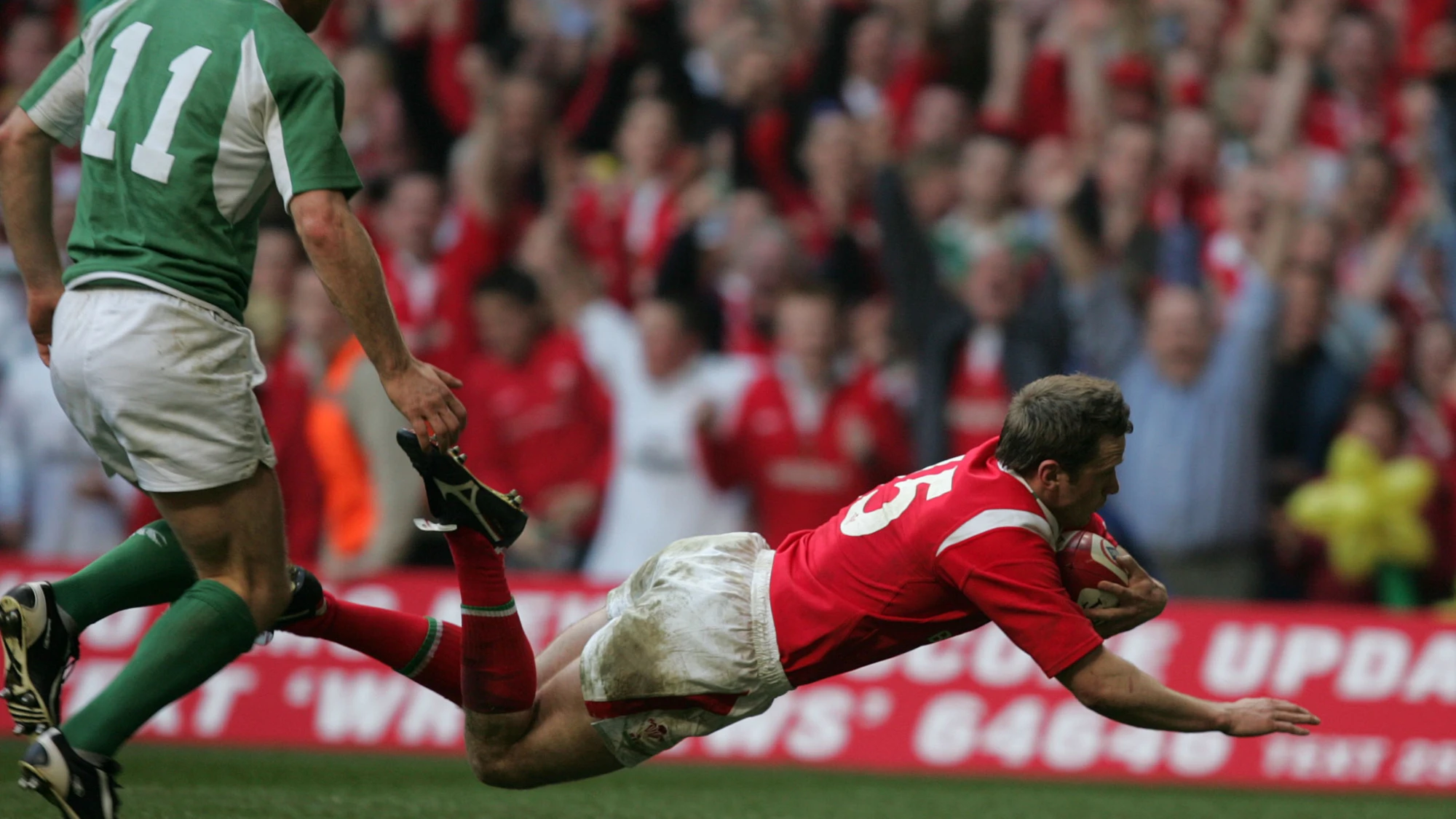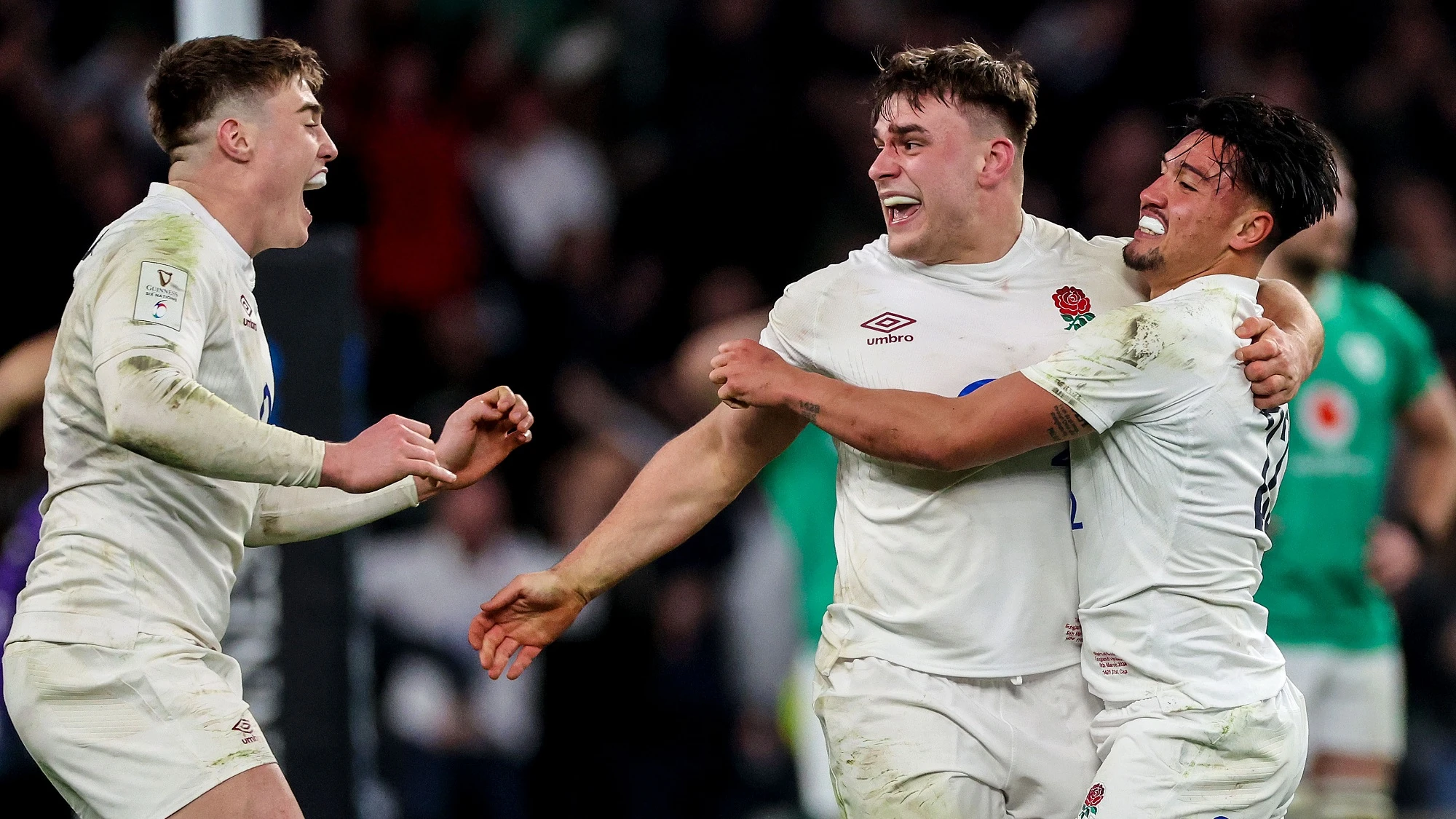Such has been Wales’ success in the Guinness Six Nations over the past two decades that it is hard to put into context just how momentous it was for Mike Ruddock’s side to win the Grand Slam in 2005.
It had been 27 years since the previous clean sweep, 11 since a Championship title and in the five editions since Italy’s addition to the competition, Wales had never finished in the top half of the table.
So despite a promising autumn campaign in which Wales lost to South Africa and New Zealand by a combined margin of three points, the idea of a Grand Slam was far-fetched in the extreme.
For one member of the squad, the success was even more unlikely.
Full-back Kevin Morgan ended up being the man who scored the clinching try, going over just after the hour-mark in the final match against Ireland to put the game beyond doubt.
But he had spent much of 2004 on the sidelines with a broken foot and faced an uphill battle just to get back into the squad.
He recalls: “At that time I’d been watching Mike Ruddock come in and turning the fortunes around slightly. I think that was built from some of the work that Steve Hansen and Scott Johnson had done before. But Clive Griffiths and Mike Ruddock had really taken it on again and the team had built some momentum while I was out of the side. They had done well against South Africa and New Zealand that autumn. I managed to get back on the bench during a Japan game that autumn.
“But they’d got a good bit of momentum so I knew I’d have to really play well to get into this team because they were playing really well. I think a lot of people thought it’s a good team developing here. I don’t think they expected the team to do that well in the 2005 Six Nations.
“We kicked off with the 11-9 win over England when Gavin Henson kicked one from halfway to win the game. It just took off from there. We played some great rugby from that point onwards. It was great to be a part of that and you could feel the swell of support. The Welsh team hadn’t had a successful Six Nations, hadn’t won a Grand Slam for 27 years, hadn’t won the Championship since 1994 so the Welsh rugby-loving public were just praying for a bit of success.
“All of a sudden we won a couple of games, we came back unbelievably well in France in the third game and people thought then, this is a hell of a chance to finally lay 27 years of pain to rest.
“The swell of momentum was unbelievable and I remember going into the Irish game and just feeling quietly confident. We were all quietly confident. We understood we’d have to play well to win that Ireland game and win the Grand Slam but it just felt like it was meant to be.”
TURNING POINT IN PARIS
Starting on the bench, Morgan moved into the starting XV for the game in France, slotting in on the wing rather than his preferred position of full-back. And for him, there is no question that it was at the Stade de France that the Grand Slam really became a possibility as Wales emerged 24-18 victors.
He added: “That comeback win in France really instilled a lot of belief in us. Welsh wins in France were few and far between so to get that win, especially in the manner, was key.
“We really dug in in the first half. France were by far the better team, controlled a lot of play and we came back and scored some great tries. We hung on right at the death. We went up to Scotland then and blew them away in the first half, scoring nearly 40 points in a half of rugby.
“So the confidence that France game gave us, coming back in Paris, we took that on to the Scotland game. We played some fantastic stuff in that game and it rolled into the Ireland game. We ended up being 20 points up with half an hour to go. It was like we’d won the game and we sort of cruised it in towards the end.”
CLINCHING THE SLAM
With momentum on their side, Morgan and his teammates prepared for the final game against Ireland with a great deal of confidence.
But it was on the morning of the game that it really hit him, just how big an occasion this was going to be.
He added: “One of the funniest things was, when we were driving into the stadium from the hotel, the Welsh team always stayed at the Vale Hotel and they still do, the amount of people in Cardiff that day was insane. You’d never seen it so full.
“It took us forever to get to the stadium because all the roads were full of people. It seemed like everyone in Wales was in Cardiff that day. So as you’re driving in, you can see the number of people who are there supporting you, the enormity of the day does hit you.
“I’m sure all of us, if we weren’t already nervous, we were when we came into the stadium and saw the whole nation. Their weekends depended on you, their year probably depended on you winning that game. So we realised the enormity of it, notwithstanding the fact Wales hadn’t won the Grand Slam for 27 years. But the whole nation was behind us and the swell of positivity had really grown to a crescendo when we got to that point. We couldn’t lose basically, they probably wouldn’t have let us back in Cardiff!”
They duly delivered and Morgan produced the coup de grace as he popped up on the shoulder of Tom Shanklin to run in Wales’ second try to put his team 23 points clear in what ended up being a 32-20 success.
He recalls: “Scott Johnson, who was the backs coach, was very keen for us to all flow as a backline. Anyone who makes a break, you’re always flowing onto the ball and there in support. Tom was fantastic that year and made a lot of breaks. He’s a very underrated player, he made a lot of good breaks that year and you’d try to anticipate that he was going to make them, him and Gav (Henson) really.
“You’d make sure you were there if he does make that break. I was only doing what we were told to do by the coaches. Luckily enough I was on Tom’s shoulder and he did decide to pass to me and I went over. That was the game winner really. Luckily enough for me, it was me who scored the try, but it was a team effort, we played some really good rugby in that game and fully deserved the Grand Slam.”
The Big Interview: Chris Paterson on kicking, his career and the Calcutta Cup
BUILDING ON 2005
The celebrations are the most vivid memories for Morgan from that day, spending time back in the changing rooms with partners and families.
The game itself is a bit of a blur, and while it was a landmark moment for Welsh rugby, Morgan jokingly admits that the Welsh success since has obscured just what a breakthrough it was.
Morgan added: “As it goes on and on, it’s forgotten a bit more by the younger generation. I shouldn’t curse but they won it again three years later so 2005 got forgotten about. If it had gone another 27 years, I’m sure it would be remembered a bit more. But the good thing about it for Wales especially is that changed fortunes.
“We’ve had a long period of success, probably punching way above our weight. It’s great for Wales. Rugby is our national game or seems to be, I know football is big as well but it’s important that Wales does well on the sporting front so for us to be as successful as we have in the past 15-20 years is great for the nation.
“Even though the Grand Slams in 2008 and 2012 and 2019 have taken the shine off 2005 and given me less after-dinner speaking appearances! It’s been great, that was the start of what has been a really successful period.”
It was the highlight of Morgan’s Wales career. As a youngster from Pontypridd he had made his Five Nations bow in 1998 at Wembley, scoring his first try in the Championship a fortnight later in a win in Ireland.
Injuries, not just the broken foot but also two major knee operations, kept him out for long periods, and he played his last Test in 2007. A snapped Achilles in the 2009/10 season then signalled the end of his playing career.
But those injuries inspired him to go into strength and conditioning where has worked with the Ospreys, Georgia and now at Bristol Bears.
There he works with the likes of Callum Sheedy and Ioan Lloyd, both capped by Wales in the autumn.
He remains as keen a Wales fan as ever, with the same excitement around a Championship weekend as when he was a schoolboy in Pontypridd in the 1980s.
As Morgan explains: “I grew up in the barren years but it didn’t turn me against rugby.”
Luckily for him and Wales it didn’t. In 2005 it was his try that signalled the end of 27 years of hurt and the start of a brave new era for rugby in Wales.



